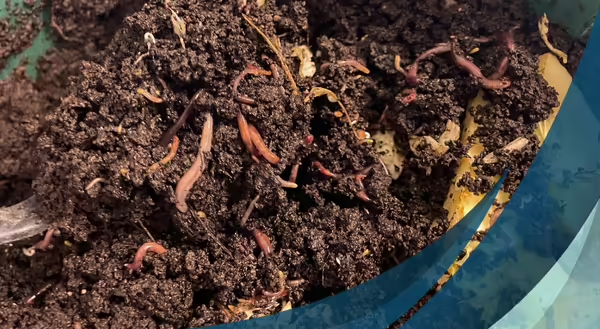
At its core, composting is recycling organic matter into nutrient-rich soil. Plants and other vegetative matter are broken down by decomposers such as insects, worms, fungi, and bacteria, making the nutrients they contain available to other growing things. It also helps to improve the physical, chemical, and biological properties of the surrounding soil. Composting helps individuals reduce their food and yard waste while also providing free fertilizer.
The set up
There are many ways to set up your compost bins. The simplest would be to just pile up plant waste and let nature take its course. This may be problematic in small yards or where animals may make a mess of things. It can also be smelly and unsightly—not good for being kind to neighbors! The internet has many suggestions of ways to design your compost, such as bin setups made from pallets (look for heat treated, instead of chemical treated), lumber, or old fencing. Keep in mind that compost piles should occasionally be turned, so having 2-3 bins together can make that process easier.
The process
Most types of plant material can go in a compost. Typically, materials are divided into “browns” and “greens”. Browns are high carbon materials like dry leaves, woodchips, and paper/cardboard. Greens are fresh material that is high in nitrogen, such as fruit and vegetable scraps, coffee grounds, and grass clippings. Large pieces should be chopped up to help them break down faster. Animal products such as meat and dairy, animal waste, and any diseased plant material or anything with seeds should be avoided. For a healthy compost, equal amounts of “browns” and “greens” should be added. Compost should be turned periodically to incorporate fresh oxygen into the mix. The more often the pile is turned, the hotter it will get, and the faster things will break down. Adding water if the pile seems too dry when you turn it will also help speed up the process.
Vermicomposting
If you don’t have space for an outdoor bin but would still like to compost, a vermicompost (or worm bin) may be a good fit. Worm bins use the amazing abilities of worms to quickly break down food scraps. All it takes is some shredded paper, food scraps, and worms and you’ll soon have some “black gold” that can be added to houseplants, containers, or your garden. Maintained properly, worm bins have almost no smell, don’t attract bugs, and still leave behind very rich soil in less time than a traditional compost bin. Kits or full instructions for a DIY worm bin can be found here.
For more information on composting, check out the University of Illinois Extension’s website on composting and vermicomposting. Also, check out the University of Illinois Extension Horticulture YouTube Channel for videos on other horticulture topics.